Brexit: The art of no deal
- Published
Business requires expertise in negotiations, which can be applied to the Brexit process.
A Harvard professor predicted exactly what has happened, and now reflects on where Theresa May went wrong.
Educating voters, on hard choices and compromise, was necessary to prepare the ground for the choice now facing MPs
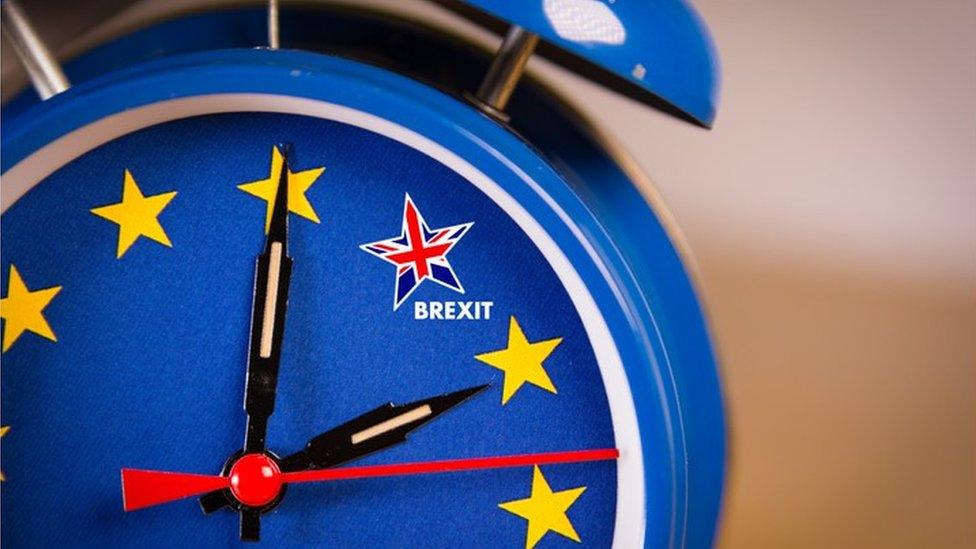
Business just wants less uncertainty around Brexit. So do we all, but in the boardroom, uncertainty means investment is delayed.
Down the line, that has an impact on jobs, productivity and growth.
For now, the short-term benefit of Brexit uncertainty is that some spending is brought forward, to stockpile raw materials and components for instance.
But another business dimension to Brexit is worth a closer look.
A business mindset could bring to the table an understanding of negotiations - of how to get to a deal. On the withdrawal arrangements, it may be late to do so with EU partners, but deals will be necessary within Westminster.
Perhaps the most famous deal-maker of all, Donald Trump, could surely teach us something? His book The Art of the Deal was a long-time best-seller.
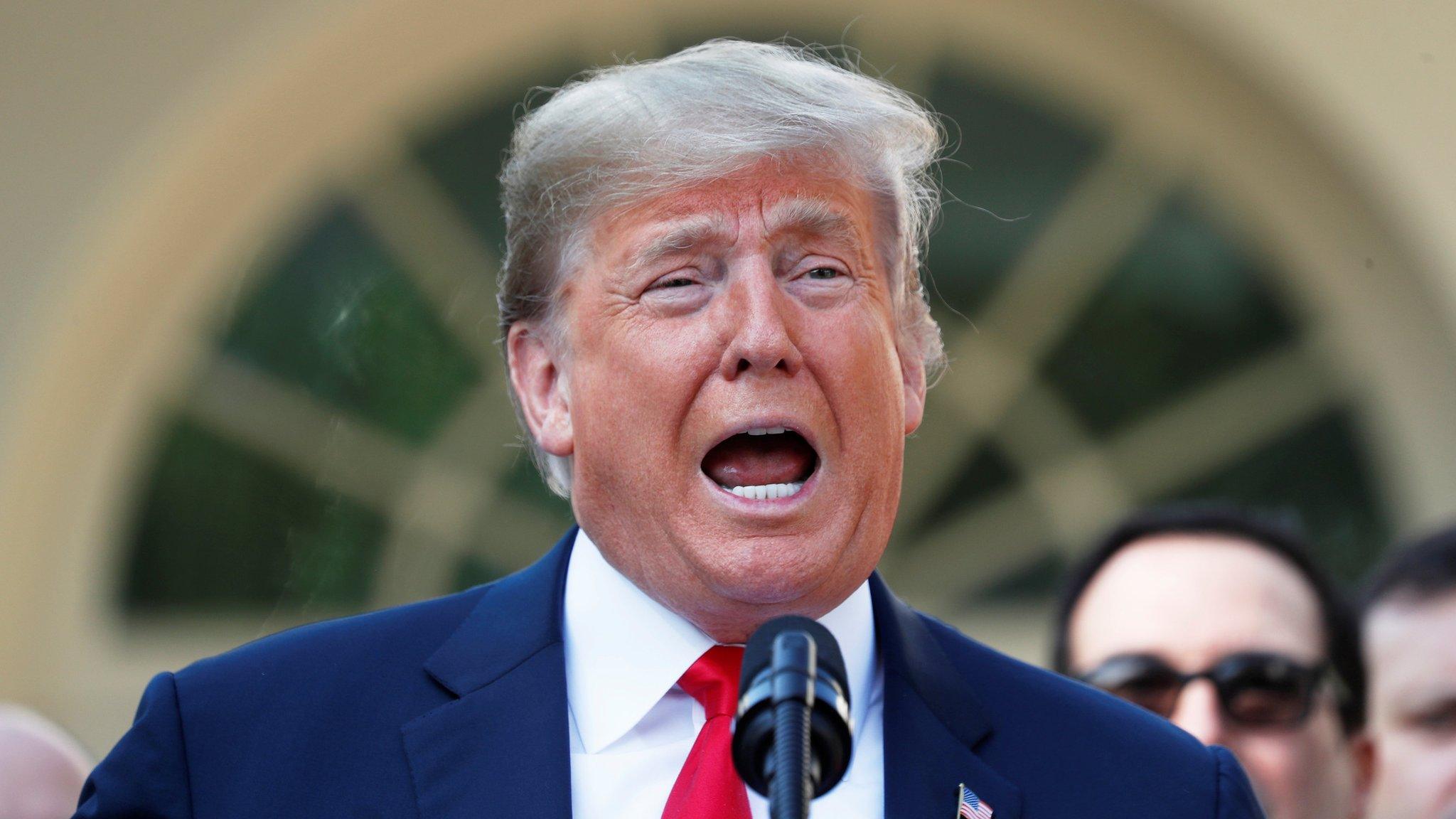
His critics claim the US president's approach to negotiating from the Oval Office is full of bluster, creating confusion (mostly on his own side), and when things come up short, he simply makes things up about them.
But what a US president has on his side is that he starts with a lot of clout in almost every aspect of diplomat, economic and military affairs. That's not where Theresa May started.
Leverage
A more thoughtful and methodical business mindset has been applied at Harvard Business School by Prof Deepak Malhotra. He teaches negotiating skills and practices them, from the boardroom to international peace talks.
He was interviewed earlier this week during Good Morning Scotland, on BBC Radio Scotland, offering a devastating take on just how hapless the UK negotiators have been.
This followed an article written in August 2016, not long after the referendum, and seven months before Theresa May pressed the button on Article 50.
At that time, EU leaders were pressing her to get on with it. That, noted the Harvard professor, gave her some leverage. They wanted something that only the British prime minister could give.
In that position, she could have said she would start the process in exchange for concessions on, for instance, the process and timetable. She didn't.
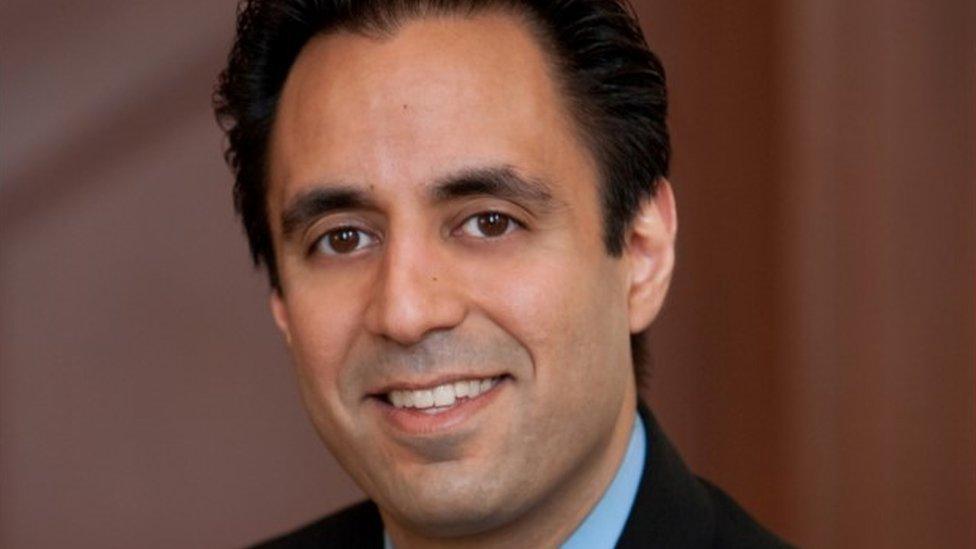
Prof Deepak Malhotra has offered his take on the performance of UK negotiators
Having taken a look at the promises made by the Leave campaign ahead of the referendum vote, here's what else Deepak Malhotra wrote two months after it, in the Harvard Business Review: "Almost none of what was promised is actually possible - especially given the EU's leverage and other constraints - which means the UK government will have to find a way to sell a lesser deal, or end up with no deal at all.
"But remember: constraints can be a source of leverage. UK negotiators might be able to credibly say that they can't possibly go back to their supporters with significantly less than what they promised on the eve of the referendum. In other words, the EU will need to make more concessions to avoid no deal.
"But," he added, "the situation is a double-edged sword: The EU might come to the conclusion that since any deal is going to fall short of the extreme promises made in the UK, it is not worth giving any special concessions at all."
Yes, you know the next bit. Reflecting on his August 2016 observations in a further article in the New York Times last month, Prof Malhotra noted that was precisely where Theresa May had arrived.
Concessions
Prof Malhotra reckons the prime minister made at least two big strategic errors: she failed to understand the position of the EU27 negotiators, and the red lines they could not cross.
And by - unnecessarily - taking on the Leave rhetoric as if it had been her own (when it wasn't), she owned the problem that others had created for her. Then, at no point, at least until striking the deal late last year, did she educate MPs and voters in the concessions that would be necessary.
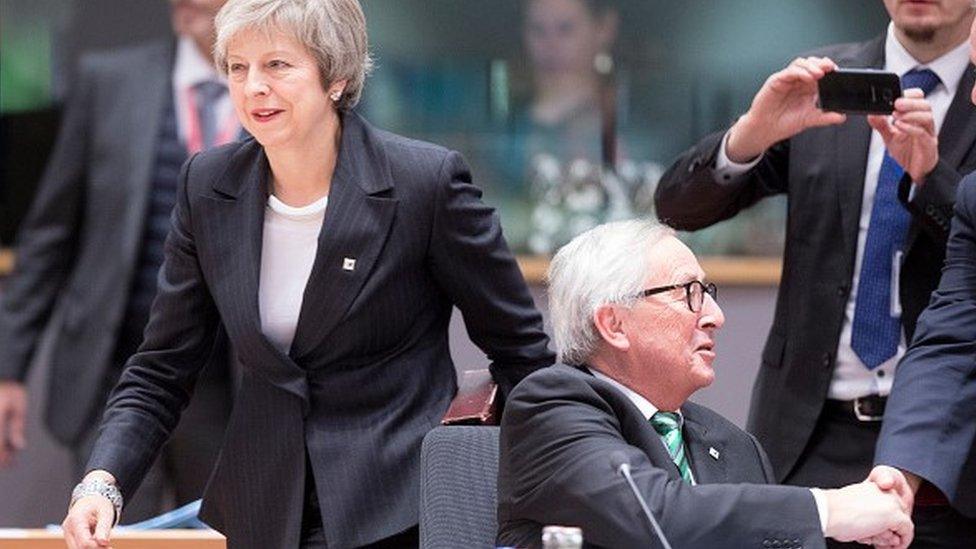
Theresa May is pictured beside European Commission president Jean-Claude Juncker at a meeting in Brussels in December
So she could have been telling Boris Johnson and similar resigners: "Not my mess. You got us here, and failed to have a plan. I'm the one who's clearing up after you". But she didn't.
The priority appears to have been placating groups within the Conservative ranks, with much less attention paid to the viewpoint of the people in the other side of the negotiating table.
No concession
If there's one thing Brexiteers might have learned by now, it is that EU negotiators aren't the chumps that some had taken them to be.
The European Commission has been busy negotiating on trade all the time that British ministers and officials have not been doing so.
The last prime minister who had power to negotiate trade on behalf of Britain was Edward Heath, 47 years ago. Few of his advisers from then are even alive, and the few that remain are hopelessly out of date in this highly technical arena.
So what they understand, and what Prof Malhotra underlined, is that negotiators need to understand where they have leverage, and how to use it.
Take the Brexiteers' confident assertion that the UK sells less to the EU than the EU sells to the UK, and therefore they'd be mad not to concede to UK demands. That failed the basic test of proportionality.
The assertion is true, but which side stands to take more pain from a 'no-deal' Brexit? UK exports to the EU are more than 40% of the total. EU27 exports to the UK are about 10%. So the EU had more sales in absolute terms, but also more leverage.
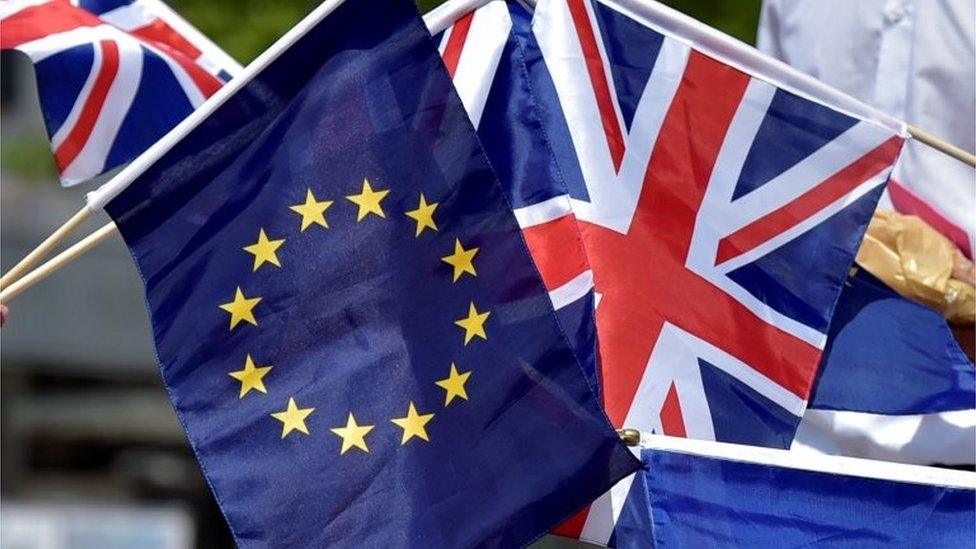
The British had some leverage back when Prof Malhotra wrote his first Brexit article. There was the timing of Article 50, but it was announced with no concession, and the leverage given up.
The UK has a disproportionately strong role in defence and intelligence-gathering. The rest of the EU wants to retain that expertise and strength.
But the UK side had to make it credible that it could withdraw that co-operation if it didn't get its way. That was never likely to work. Which prime minister wants to explain to the public that a terrorist incident took place because of the withdrawal of police and intelligence co-operation?
Blunt honesty
Back in August 2016, Prof Malhotra wrote, prophetically: "When you think about the interests and constraints of both sides, it becomes hard to envision any deal that all parties can accept - unless UK negotiators are able to go back to their constituents and sell a deal that falls well short of what was initially promised.
"This has a few implications," he suggested:
a 'no deal' scenario is very possible.
if a deal is going to happen, it will require tremendous creativity as well as sensitivity to the needs of the other side.
"Both sides will have to make as many concessions as they possibly can. The UK will have to ask for what it wants in ways that allow the EU to make concessions without setting dangerous precedents," he said.
"The EU will have to make symbolic concessions that allow UK negotiators to sell the deal internally to a potentially disappointed audience."
Again, none of that happened. So now, where are we?
The Harvard negotiations expert suggests that the prime minister might wish to use the disarming tactic of blunt honesty: not just that "the deal isn't perfect", but something like "the Northern Ireland backstop is a horrible compromise of sovereignty and the integrity of the UK, I know, but for those of you who voted to leave, it was impossible to avoid - so suck it up". Words you'll never hear from Theresa May.
Prof Malhotra points out that framing the choice as one between her deal and no deal is only going to work if her people are fearful of no deal. They're not.
Much better, it is suggested, to say Parliament faces a choice between her deal and another referendum, opening the door to no Brexit. Brexiteers fear that outcome far more than no deal. But by refusing to contemplate another referendum, she hasn't taken that route either.
Third country
When the history books are written, on reflection, there may be some aspect of Britain's negotiating strategy and tactics that is reckoned to have worked well - but for now, it's hard to see.
But then, you may ask: "Isn't this all for the history books? What's done is done. We are where we are."
Sorry to disappoint, but whatever emerges over the next few months is likely to be the start of a new round of negotiating. The deal on which MPs are voting is about the temporary arrangements for a transition.
Next come the talks on a future EU relationship. For that, the UK will be a "third country" - nice to have as a favoured trading partner, but on the EU's terms. I'm told the expectations in Brussels are for ruthless pursuit of EU27 advantage, of which there's quite a lot, rather than a distant hope that Brexit might be reversed.
The same goes for the mindset of US trade negotiators under Donald Trump. And even New Zealand has more experienced negotiators than Whitehall.
So...what could possibly go wrong?